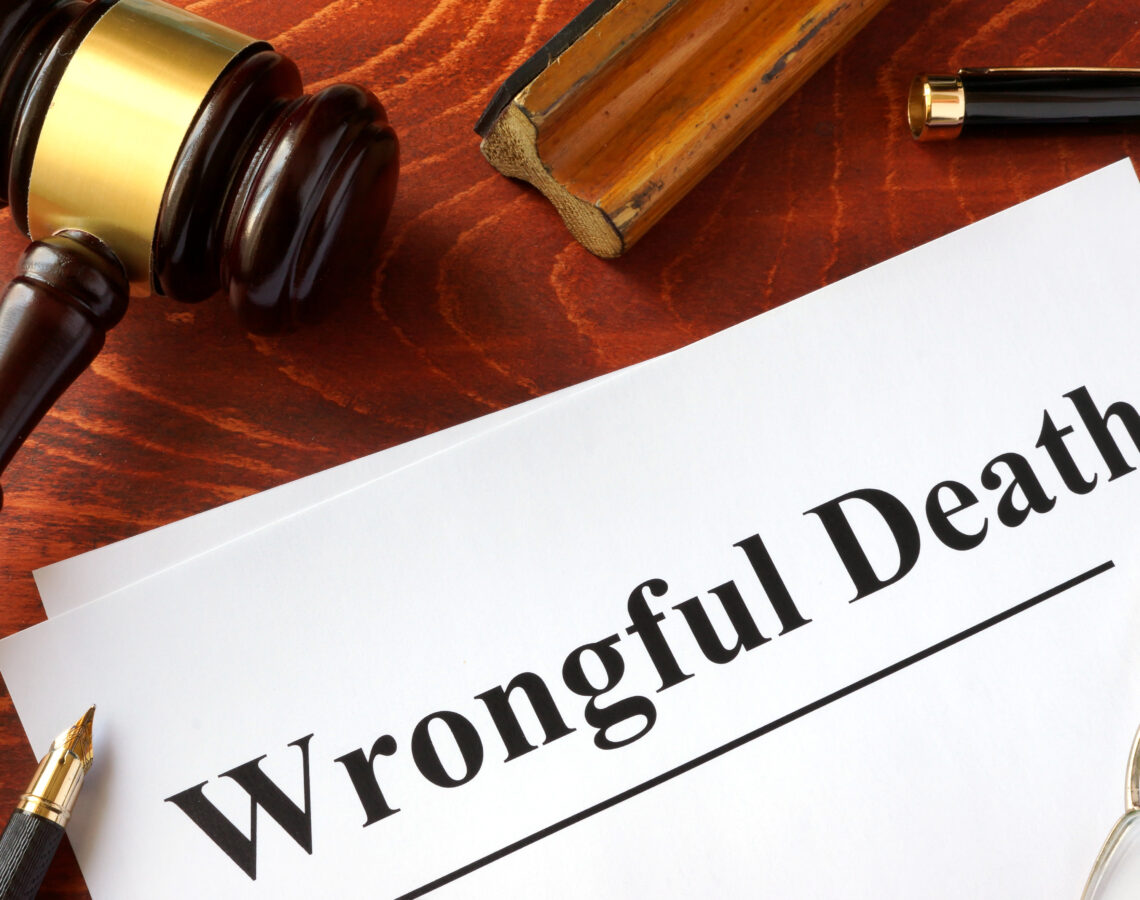Can Multiple Family Members File a Wrongful Death Claim?

The loss of a loved one due to someone else’s negligence or misconduct often leaves families with more questions than answers. One of the most common questions is whether multiple relatives can file a wrongful death claim.
Several family members often experience emotional, financial, and practical consequences, and each may feel entitled to justice or compensation; however, the law limits who can initiate legal action and how any resulting compensation is distributed.
This guide by Klezmer Maudlin, PC, answers the question of whether multiple family members can file a wrongful death claim, how family members are treated under Indiana law, and what steps families can take—often with the guidance of an Indianapolis Wrongful Death Lawyer—when more than one person is affected by the loss.
Who Has the Legal Right to File a Wrongful Death Claim?
In Indiana, wrongful death claims are governed by the Indiana Code, which specifies who may bring legal action after a person’s death. The person permitted to file is typically the personal representative of the deceased individual’s estate. This representative may be named in a will or appointed by a probate court.
While the estate representative is the one who files the legal action, the claim is often filed on behalf of surviving family members who suffered measurable losses. These individuals may include:
- A surviving spouse
- Biological or adopted children
- Parents or legal guardians
- Dependent next of kin in some circumstances
If the deceased was a child, Indiana law allows parents or legal guardians to file directly. If the parents are divorced, the court may determine which parent has the legal authority to file.
Even though more than one relative may have suffered from the loss, only one wrongful death lawsuit may be filed per decedent. The outcome of that lawsuit may benefit several family members, but the court does not allow multiple, separate lawsuits for the same death.
Can Multiple Family Members File a Claim at the Same Time?
Multiple family members may be entitled to recover damages, but the court generally allows only one wrongful death action to proceed. In Indiana, this claim is brought by the estate’s personal representative, who files the lawsuit on behalf of the beneficiaries. Depending on the family structure and the circumstances of the death, these beneficiaries can include multiple family members.
For example, if a person dies, leaving behind a spouse, two adult children, and a dependent parent, all of these relatives may be financially and emotionally affected. However, they do not file individual lawsuits. Instead, their losses may be presented through the single claim filed by the estate’s representative.
In some cases, families work together to select the personal representative. In others, a designated executor may already exist under a valid will. When a disagreement arises, a court may appoint a representative who can act on behalf of all beneficiaries.
Coordination is important. A disorganized or contested filing may delay the process or affect the outcome. When multiple parties have an interest in the claim, legal counsel can help ensure that all eligible damages are accounted for and correctly submitted.
What Happens When There Are Disputes Among Family Members?
 Disagreements among family members are not uncommon. One relative may want to pursue legal action immediately, while another may hesitate or object. Others may disagree about who should control the case, how the deceased would have wanted it handled, or who should receive compensation.
Disagreements among family members are not uncommon. One relative may want to pursue legal action immediately, while another may hesitate or object. Others may disagree about who should control the case, how the deceased would have wanted it handled, or who should receive compensation.
When disputes arise over whether to file or who should serve as the representative, Indiana courts have the authority to appoint a personal representative. This person does not need to be a family member but must be someone capable of representing the estate fairly and lawfully. Once appointed, the representative becomes responsible for filing the claim, managing legal communications, and distributing any settlement or award according to the court’s orders.
The law does not allow multiple wrongful death claims for the same person. If a family member attempts to initiate a separate lawsuit while another is already pending, the court may dismiss the second case or merge it into the original. Because of this, communication among surviving relatives is essential, especially in large or blended families where multiple parties may feel they have a legal interest.
An experienced wrongful death lawyer can help with these situations by assisting families in reaching an agreement or seeking court intervention when a consensus cannot be reached. Early legal guidance often prevents disputes from escalating or interfering with the legal process.
How Are Wrongful Death Settlements Divided in Indiana?
When a wrongful death case results in a settlement or jury award, the question of distribution arises. Who receives the compensation, and how is it divided?
In Indiana, this is often determined by statute or the court’s assessment of each beneficiary’s relationship to the deceased. The court may look at several factors, including:
- Financial dependency on the deceased
- Emotional impact of the loss
- Out-of-pocket expenses, such as funeral or medical bills
- The nature of the relationship (e.g., minor child, dependent parent)
In many cases, settlements are distributed based on a structured agreement between the parties, approved by the court. For example, if the deceased left behind a spouse and a minor child, the settlement might be divided so that each party receives a portion based on financial need and dependency.
The court may require additional steps if one or more beneficiaries are minors or individuals with limited decision-making capacity. This could include placing funds in a trust or appointing a guardian to manage the award until the person reaches adulthood.
Distributions are not always equal. Courts aim to divide compensation according to each person’s losses, not merely their legal relationship to the deceased.
Statute of Limitations for Wrongful Death Claims in Indiana
Indiana law imposes a two-year statute of limitations for wrongful death claims. This means the claim must be filed within two years from the date of death. Failing to act within this timeframe generally prevents the case from proceeding, regardless of merit.
There are limited exceptions. For instance, if the wrongful death was not immediately discovered or if the identity of the responsible party was unknown, the court may consider whether equitable tolling applies. However, such exceptions are rare and not guaranteed.
The statute of limitations may be extended in cases involving minors, but the estate must still initiate the claim within the standard period unless specific legal rules apply.
Because time limits can affect eligibility, it is vital to act promptly once there is reason to believe another party’s negligence or wrongdoing caused the death.
What Should You Do If You Think You Have a Wrongful Death Claim?
The first step is to confirm whether a wrongful death claim is permitted under Indiana law based on the circumstances of the death. This includes examining whether the death resulted from negligence, recklessness, or an intentional act. Supporting documentation, such as medical records, police reports, and witness statements, can provide meaningful context.
Once there is reason to believe that a wrongful death occurred, families should take the following steps:
- Identify Eligible Claimants
Determine who has a legal interest in the case. This may include a spouse, children, or parents. Other relatives may be eligible under specific conditions if no immediate family members exist, but eligibility must align with Indiana statutes. - Determine Who Will Serve as the Estate Representative
If a will exists, it may name an executor who automatically becomes the representative. The probate court may need to appoint someone if no will is present. This person will have the legal authority to initiate the claim and manage court proceedings. - Gather Key Records and Documentation
Collect any relevant materials early. This can include death certificates, hospital bills, photos of the incident, or correspondence with insurance companies. These documents will support the legal claim and help establish liability and damages. - Request a Legal Assessment
A consultation can clarify whether a case qualifies and what damages may be recoverable. These may include funeral expenses, medical costs, lost income, and loss of care or companionship.
Initiating these steps early helps avoid potential delays, especially with the statute of limitations. Courts do not allow exceptions based on misunderstandings or miscommunication among family members.
What if the Deceased Had No Immediate Family?
Wrongful death statutes in Indiana focus on the rights of spouses, children, and parents. However, when the deceased has no immediate next of kin, certain extended family members may still have standing to recover damages under limited conditions.
Siblings, grandparents, or other dependents may be considered if the deceased financially supported them or held a significant legal relationship with them. In these cases, the estate’s representative still manages the claim, but the court will evaluate each person’s role in the deceased’s life to determine eligibility for compensation.
It is also important to differentiate between general wrongful death claims and survival actions. Survival actions address the injuries or losses the deceased suffered before death, such as pain and suffering. These are separate from wrongful death damages, which focus on the impact on surviving relatives.
In cases where no suitable claimant exists or where no action is taken, the legal system may decline to pursue damages. This underscores the importance of reviewing family structure and dependents early.
Schedule a Consultation With an Indiana Wrongful Death Attorney
 Every wrongful death case involves distinct legal and factual elements. Eligibility, representation, and compensation depend on the circumstances, relationships, and available documentation. Indiana law imposes a firm deadline, and disputes among relatives can complicate progress if not addressed early.
Every wrongful death case involves distinct legal and factual elements. Eligibility, representation, and compensation depend on the circumstances, relationships, and available documentation. Indiana law imposes a firm deadline, and disputes among relatives can complicate progress if not addressed early.
A consultation with a skilled Indiana wrongful death lawyer allows potential claimants to ask questions, review available legal options, and assess whether pursuing a claim is appropriate. Many law firms offer these assessments without upfront costs, allowing families to make informed decisions without financial pressure.
The consultation should cover the likely value of the claim, which family members may be included, what documentation is needed, and how compensation could be structured. It also provides an opportunity to clarify expectations about timing, legal fees, and court involvement.
A law firm can assist with estate matters if no representative has been appointed, ensuring the case is filed within the required timeframe. An Indianapolis personal injury lawyer providing wrongful death representation helps ensure that the process proceeds efficiently and that eligible parties receive the compensation they are legally entitled to pursue. Call 317-569-9644 for a free consultation and learn how Klezmer Maudlin can help you and your family today.
Frequently Asked Questions About Family Rights in Wrongful Death Cases
1. Can parents file a wrongful death claim for an adult child?
In Indiana, parents may pursue a wrongful death claim if their adult child was unmarried and had no dependents. However, the right to file belongs to the estate’s personal representative. When dividing any compensation, the court may consider the parents’ financial and emotional losses.
2. Can stepchildren be included in a wrongful death lawsuit?
Stepchildren are not automatically eligible to receive compensation under Indiana’s wrongful death statutes. However, if the stepchild was legally adopted or financially dependent on the deceased, the court may review their eligibility as part of the distribution process.
3. Can siblings file a claim if there is no spouse or children?
Siblings may be eligible when no closer relatives exist. The estate must still initiate the lawsuit, and the court will evaluate the sibling’s relationship to the deceased. A strong claim may depend on financial dependency or caregiving history.
4. What happens if family members disagree about the lawsuit?
When family members cannot agree on how to proceed, the court can appoint a representative to act on the estate’s behalf. That person will manage the case, communicate with counsel, and handle legal filings properly. The court may also resolve disagreements over settlement distribution.
5. What types of damages can be recovered in Indiana’s wrongful death claims?
Indiana law permits compensation for medical bills, funeral costs, lost wages, and loss of companionship. The exact amount and type of compensation depend on the deceased’s age, family relationships, and financial contributions. Courts may also award legal costs or other approved expenses.

